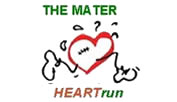AWARENESS AND CONCERN ABOUT MALOCCLUSION AMONG 12-15 YEAR-OLD CHILDREN IN MOSHI, TANZANIA
Abstract
Objective: To assess awareness and concern about malocclusion in 12-15 year-olds in Moshi, Tanzania.
Design: A cross-sectional study.
Setting: Moshi Municipality in Kilimanjaro region, Tanzania.
Subjects: Two hundred and ninety eight randomly selected Public primary school children aged 12-15 years (158 males and 140 females).
Results: About 56% of the respondents thought their teeth were properly aligned. However only 29.1% of the respondents reported being dissatisfied with the way their teeth appeared in their mouth. About 25% of the respondents found their teeth to have been worse than most of their agemates.
Children who reported to have been teased due to their malocclusion comprised 25.8%. Those who thought it was unpleasant to stay with malaligned teeth constituted 55.7% of the respondents. Subjective orthodontic treatment need was reported by 69.1% of the sample. Majority of the children (75%) were ready to accept orthodontic treatment. There were significant correlations between factors of awareness and those of concern about malocclusion among the subjects.
Conclusions: In spite of very little orthodontic treatment exposure in this population, awareness and concern about malocclusion was reported by a significant proportion of the children. These findings form a baseline line for future studies on the trends of awareness and concern towards malocclusion in this population. They will also be useful in the planning of orthodontic services in Tanzania.
Design: A cross-sectional study.
Setting: Moshi Municipality in Kilimanjaro region, Tanzania.
Subjects: Two hundred and ninety eight randomly selected Public primary school children aged 12-15 years (158 males and 140 females).
Results: About 56% of the respondents thought their teeth were properly aligned. However only 29.1% of the respondents reported being dissatisfied with the way their teeth appeared in their mouth. About 25% of the respondents found their teeth to have been worse than most of their agemates.
Children who reported to have been teased due to their malocclusion comprised 25.8%. Those who thought it was unpleasant to stay with malaligned teeth constituted 55.7% of the respondents. Subjective orthodontic treatment need was reported by 69.1% of the sample. Majority of the children (75%) were ready to accept orthodontic treatment. There were significant correlations between factors of awareness and those of concern about malocclusion among the subjects.
Conclusions: In spite of very little orthodontic treatment exposure in this population, awareness and concern about malocclusion was reported by a significant proportion of the children. These findings form a baseline line for future studies on the trends of awareness and concern towards malocclusion in this population. They will also be useful in the planning of orthodontic services in Tanzania.
Refbacks
- There are currently no refbacks.


